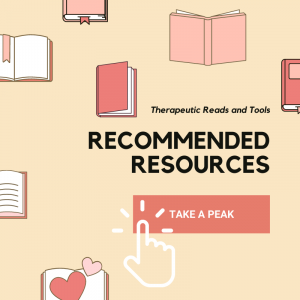
Understanding Parent–Adult Child Dynamics Through a Neurodivergent Lens
Many of us have seen or shared those popular articles about “narcissistic” or “emotionally unavailable” parents. These stories often hit home, describing the deep pain of feeling unseen, unheard, or neglected. And for many adult children, setting boundaries and acknowledging that pain is a crucial part of healing.
But what if there’s another layer to these complex family relationships that often gets missed? What if what looks like emotional distance or neglect could sometimes be rooted in a parent’s neurodivergence, like ADHD or autism, rather than intentional harm? This isn’t about excusing pain, but about understanding the full picture.
As an integrative therapist and adult child of a recently diagnosed AuDHD parent, I often see how challenging it can be for parents and adult children to truly connect. When emotional attunement feels off, it’s natural to assume the worst. However, exploring neurodevelopment differences can offer a more compassionate and nuanced perspective for both the parent and the adult child (who may or may not also be neurodivergent themselves).
When Connection Feels Like a Puzzle: Barriers to Attunement
Imagine a parent who genuinely loves their child but struggles with certain aspects of communication or emotional regulation due to their neurodivergence. This isn’t about a lack of care, but a different way of processing the world.
Here are a few common neurodivergent experiences, and how they might play out in family dynamics:
Object Impermanence
For someone with ADHD, “out of sight, out of mind” can apply to people and relationships, too. A neurodivergent parent might genuinely love their child, but if they’re not actively interacting, the emotional connection may feel less “present.” For an adult child, this can feel like being forgotten or deprioritised.
Tips for Reflection (Adult Child’s Lens):
- Notice how your parent may express love when you are present, even if they struggle when you’re apart.
- Ask yourself: What do I need to feel remembered between contacts? — For example, would regular check-ins, scheduled calls, or shared rituals support you?
- Reflect on ways to cultivate reminders for yourself of being valued, even if your parent doesn’t initiate frequent contact.
Rejection Sensitive Dysphoria (RSD)
A neurodivergent parent may experience intense emotional pain triggered by perceived criticism or rejection. This can make it hard to tolerate their adult child’s feedback or boundaries. For the child, this might feel like their needs constantly trigger conflict.
Tips for Reflection (Adult Child’s Lens):
- Remember that your need to express feelings or set limits is valid, even if your parent struggles to receive it.
- Ask yourself: Where do I hold back my truth out of fear of their reaction? What does that cost me internally?
- When it feels safe, experiment with gentler, more structured ways of expressing needs (e.g., “I still care about you, and…”), while also holding firm to your boundaries.
- Notice whether their reaction is about your needs or about their sensitivity to rejection, separate the two to reduce self-blame.
Masking
Many neurodivergent adults spend enormous energy hiding traits to appear “normal.” A parent who masks may seem emotionally flat or distant, not because they don’t care, but because they’re exhausted by holding it all together. An adult child may perceive this as coldness or lack of intimacy.
Tips for Reflection (Adult Child’s Lens):
- Reflect on the signs of love or care you did receive (perhaps practical support, provision, or presence) even if they weren’t expressed with overt emotional warmth.
- Explore: What kind of expressions of love or connection am I longing for? Can I find those with other supportive people in my life?
- Remind yourself their apparent distance might mask effort rather than absence of feeling.
- Acknowledge your grief for the intimacy you may have missed, without invalidating your emotional needs.
Alexithymia
Some neurodivergent adults experience alexithymia, a difficulty in identifying and expressing emotions. A parent with alexithymia may genuinely care but struggle to name what they’re feeling or to respond empathically to their child’s emotions. They might appear “flat,” dismissive, or overly practical when emotional support is needed. For an adult child, this can feel like emotional distance, invalidation, or even coldness, leaving them with the sense their inner world isn’t acknowledged.
Tips for Reflection (Adult Child’s Lens):
- Notice whether your parent shows care through actions (providing, fixing, showing up) rather than through words or emotional language. These may be their ways of expressing love.
- Ask yourself: What kinds of emotional responses do I most need, and where else in my life can I safely receive them?
- Reframe: their muted responses are not an indication that your feelings don’t matter, but a reflection of their limited ability to access and express emotions.
- Consider how direct communication (“I need comfort” or “I just need you to listen”) might help, while also keeping realistic expectations of what they can offer.
Demand Avoidance
Some neurodivergent adults experience strong anxiety-driven resistance to demands (sometimes described in Pathological Demand Avoidance profiles). Parenting “demands” such as emotional availability or consistency can feel overwhelming, leading to avoidance that looks like neglect. For an adult child, this may mean persistent frustration or unmet needs.
Tips for Reflection (Adult Child’s Lens):
- Notice if there are patterns (e.g., your parent withdrawing when asked for help, or suddenly engaging when it’s on their terms). Recognize these as rooted in anxiety, not your worth.
- Ask: How can I adjust expectations to protect myself? For example, relying less on them for consistency, while turning to alternative supports.
- Reframe their avoidance: it’s not a measure of whether you are worthy of love, but a reflection of their particular struggle with demands.
- Explore boundaries — what do you choose to ask of them, and what do you let go, for your own peace?
For autistic parents, these dynamics can also be magnified by sensory sensitivities, difficulties reading subtle emotional cues, or communication differences. A child might feel unheard or unseen, while the autistic parent may struggle to interpret what’s expected of them, even though they care deeply.
Holding Both Truths
It’s vital to remember: the adult child’s pain is real and valid. If you grew up with a parent who seemed emotionally unavailable, your feelings matter, and your boundaries are important.
At the same time, expanding the lens to include neurodivergence allows for compassion. What looks like rejection or neglect might, in some cases, be the collision of differences in processing, communication, and capacity, rather than a lack of love. For some adult children, this realisation brings compassion. For others, it helps explain why firm boundaries are still necessary.
By holding both truths, we create space for more nuanced conversations about family dynamics: validating the child’s pain, while also recognising the unseen struggles of the parent.
Resources & Further Reading
On ADHD:
ADHD Foundation: What is ADHD?
Mental Health Foundation NZ: ADHD in Adults
Understanding ADHD in Older Adults (PMC article)
On Autism:
Autistic Adults and Autism Parents – National Autistic Society (UK)
Autism Parenting Magazine – resources for autistic parents and parents of autistic children
Autism Speaks: Adults with Autism (US-based, but broad resources on adulthood and parenting)
Spectrum | The Science of Autism – articles and research on autism across the lifespan
On Trauma & Neurodiversity:

